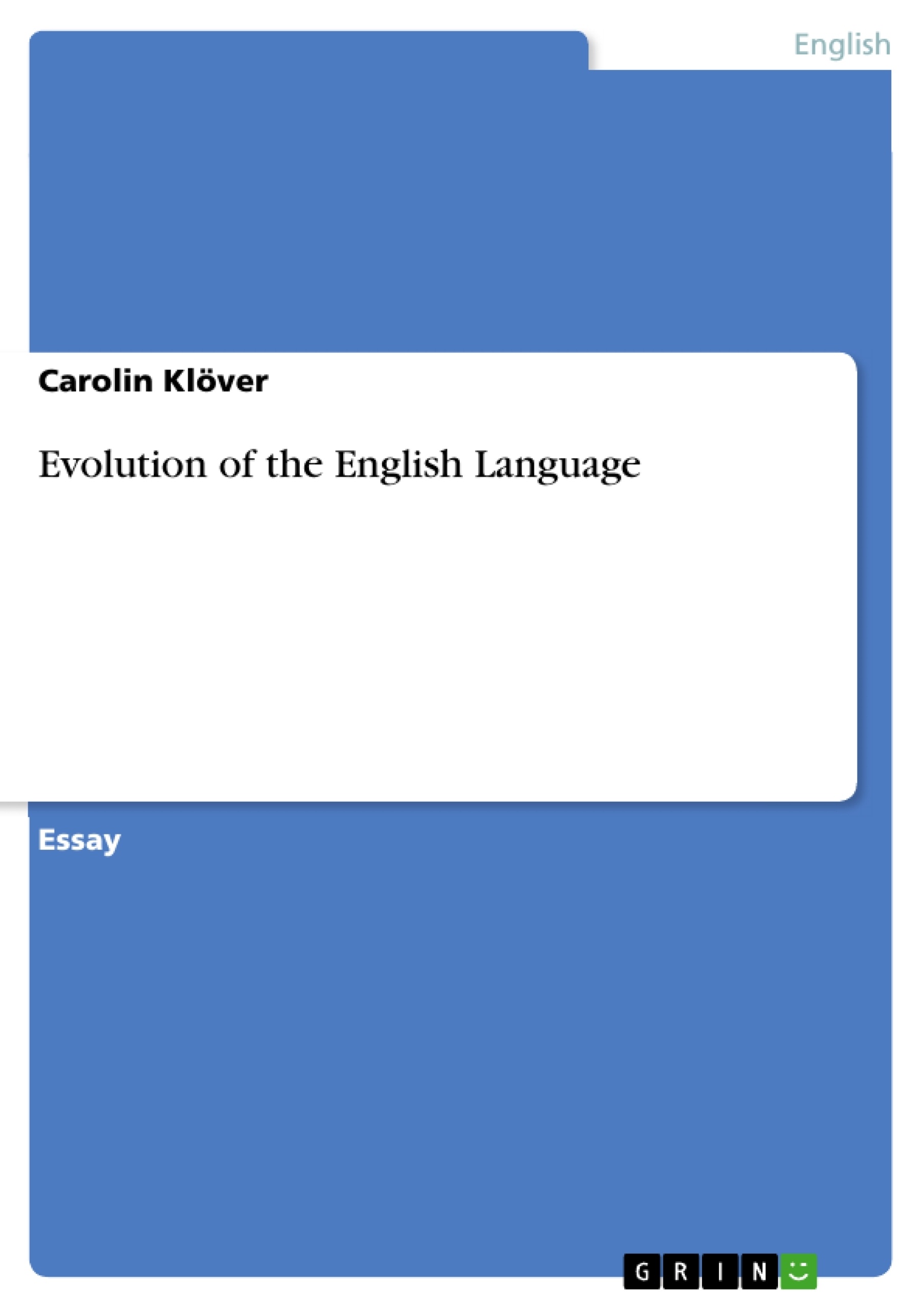Introduction
1.1 Why I have chosen this subject for my essay?
The topic of my essay, development of the English language, directly refers to the theme of our seminar “linguistics” because this evolution plays an important role at the consistence of linguistics.
1.2 Brief information about the English language
English is a Germanic language of the Indo – European family. It is the second most spoken language in the world.
It is estimated that there are 300 million native speakers and 300 million who use English as a second language in the world and a further 100 million use it as a foreign language. It is the language of science, aviation, computing, diplomacy and tourism. In 45 countries English is the official or co – official language.
[...]
Table of Contents
- Introduction
- Why I have chosen this subject for my essay?
- Brief information about the English language
- The English language
- Old English (500 – 1100 AD)
- Middle English (1100 – 1500)
- Early Modern English (1500-1800)
- Late Modern English (1800 – Present)
- English as a Global Language
- Result
Objectives and Key Themes
This essay aims to provide a comprehensive overview of the development of the English language, highlighting its evolution from Old English to Modern English. It examines the significant linguistic changes that occurred throughout history, emphasizing the influence of various external factors, such as invasions, cultural shifts, and technological advancements.
- The historical development of the English language
- The influence of external factors on linguistic change
- The impact of cultural and technological advancements on the evolution of English
- The emergence of English as a global language
Chapter Summaries
- Introduction: This chapter sets the context for the essay by explaining the author's motivation for choosing the topic and providing a brief introduction to the English language.
- Old English (500 – 1100 AD): This chapter delves into the origins of Old English, tracing its roots back to the Anglo-Saxon invaders who settled in Britain. It discusses the four major dialects of Old English and highlights the influence of Celtic languages and Viking invasions on the language.
- Middle English (1100 – 1500): This chapter explores the transition from Old English to Middle English, marked by the Norman Conquest of England in 1066 AD. It examines the impact of Norman French on the English language, leading to a bilingual society and the introduction of numerous French loanwords.
- Early Modern English (1500 – 1800): This chapter focuses on the Renaissance period and its influence on the English language. It discusses the adoption of Latin and Greek loanwords, the Great Vowel Shift, and the advent of the printing press, which played a crucial role in standardizing the language.
Keywords
The key themes and concepts explored in this essay include the historical development of the English language, linguistic change, influence of external factors, cultural and technological advancements, and the emergence of English as a global language. The essay also examines specific historical periods like Old English, Middle English, and Early Modern English, highlighting significant events such as the Anglo-Saxon invasions, the Norman Conquest, and the Renaissance.
- Quote paper
- Carolin Klöver (Author), 2002, Evolution of the English Language, Munich, GRIN Verlag, https://www.grin.com/document/2018



